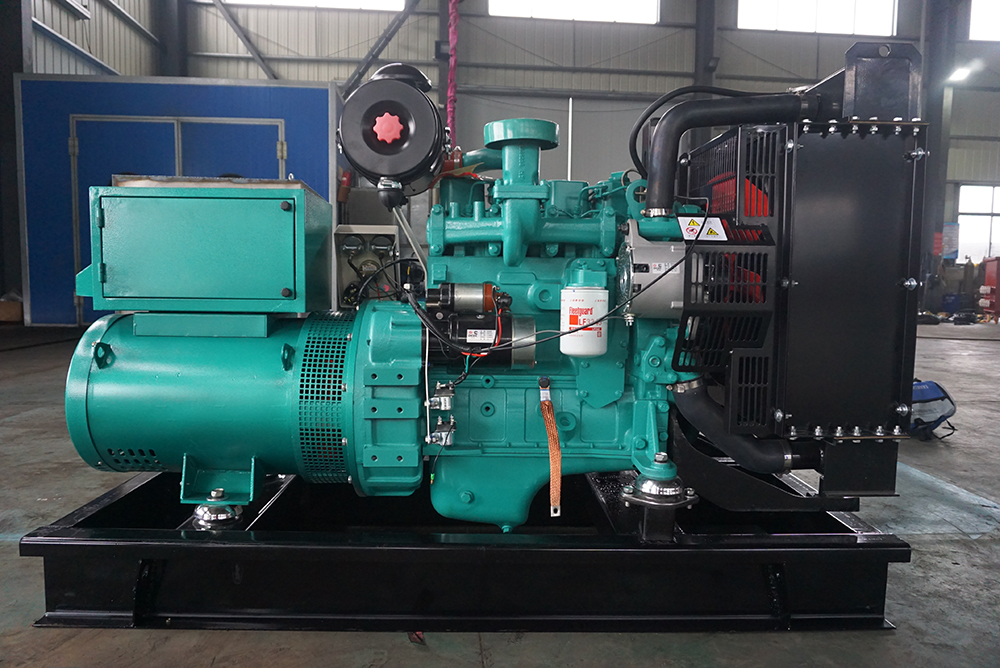The Essential Guide to Diesel Generators for Standby Power

Introduction
In today's modern world, where electricity has become an indispensable part of our daily lives, having a reliable source of standby power is crucial to ensure uninterrupted operations in businesses, homes, and critical facilities. Diesel generators have long been a popular choice for providing standby power due to their efficiency, reliability, and cost-effectiveness. In this comprehensive guide, we will explore the key features, benefits, applications, and considerations of diesel generators for standby power.
https://www.lkpowerplant.com/what-is-75kw-diesel-generator/ of Diesel Generators
Diesel generators are a type of generator set that uses a diesel engine to convert mechanical energy into electrical energy. They are commonly used for standby power generation as they are capable of providing a reliable and consistent power supply during outages or emergencies. Diesel generators come in various sizes and configurations to suit different power requirements, ranging from small portable units for residential use to large industrial-scale units for commercial and industrial applications.
Key Features of Diesel Generators
1. Diesel Engine: The heart of a diesel generator is its diesel engine, which is known for its durability, efficiency, and longevity. Diesel engines are designed to operate continuously for extended periods, making them ideal for standby power applications.
2. Alternator: The alternator is responsible for converting the mechanical energy generated by the diesel engine into electrical energy. The quality and capacity of the alternator determine the overall performance and output of the generator.
3. Cooling System: Diesel generators are equipped with a cooling system to regulate the temperature of the engine and prevent overheating. Proper cooling is essential to ensure the efficient operation and longevity of the generator.
4. Control Panel: The control panel of a diesel generator houses the electrical components and controls that monitor and regulate the generator's operation. It allows users to start, stop, and configure the generator as needed.
5. Fuel System: Diesel generators require a constant supply of diesel fuel to operate. The fuel system includes a fuel tank, fuel lines, filters, and pumps to deliver clean and reliable fuel to the engine.
Benefits of Diesel Generators for Standby Power
1. Reliability: Diesel generators are renowned for their reliability and robustness, making them a trusted choice for standby power applications. They can start quickly and provide a stable power supply within seconds of a power outage.
2. Fuel Efficiency: Diesel engines are more fuel-efficient than gasoline engines, consuming less fuel for the same amount of power generated. This results in lower operating costs over the long term, especially in applications where the generator runs for extended periods.
3. Longevity: Diesel generators are built to last, with many models capable of operating for tens of thousands of hours before requiring major maintenance or overhauls. With proper care and maintenance, a diesel generator can provide reliable standby power for years to come.
4. Power Output: Diesel generators are available in a wide range of sizes and capacities, capable of delivering power from a few kilowatts to several megawatts. This versatility makes diesel generators suitable for a variety of applications, from residential backup power to industrial emergency systems.
5. Low Maintenance: Diesel engines are known for their simplicity and durability, requiring less maintenance compared to other types of engines. Routine maintenance tasks such as oil changes, filter replacements, and inspections can keep a diesel generator running smoothly for years.
Applications of Diesel Generators for Standby Power
1. Residential Backup Power: Diesel generators are commonly used in residential settings to provide backup power during blackouts or grid failures. They can power essential appliances, lights, and heating systems to ensure the comfort and safety of residents during emergencies.
2. Commercial Buildings: Many commercial buildings, such as offices, retail stores, and restaurants, rely on diesel generators for standby power. These generators can maintain critical operations, security systems, and HVAC systems to minimize downtime and revenue loss during power outages.
3. Industrial Facilities: Industrial facilities, including manufacturing plants, data centers, and hospitals, require reliable standby power to prevent disruptions to their operations. Diesel generators are often installed as part of emergency backup systems to ensure continuous power supply in critical applications.

4. Telecommunications: Telecommunication networks depend on uninterrupted power to maintain connectivity and communication services. Diesel generators are commonly used in cell towers, data centers, and communication hubs to provide backup power during grid failures or natural disasters.
Considerations for Choosing a Diesel Generator
1. Power Requirements: Determine the power requirements of your application to select a diesel generator with the appropriate capacity. Consider factors such as peak load demand, starting currents, and future expansion when sizing the generator.
2. Run Time: Evaluate the expected run time of the generator during power outages to determine the fuel capacity and autonomy needed. Choose a generator with a fuel tank size that can support the required runtime without frequent refueling.
3. Location and Installation: Consider the installation site and environmental conditions when selecting a diesel generator. Ensure proper ventilation, clearance, and sound attenuation measures are in place to comply with local regulations and ensure safe operation.
4. Maintenance and Service: Choose a reputable manufacturer or supplier that offers reliable support, maintenance services, and spare parts for the diesel generator. Regular maintenance and servicing are essential to prolong the lifespan and performance of the generator.
5. Fuel Quality and Storage: Diesel generators require clean and high-quality diesel fuel to operate efficiently. Proper fuel storage practices, such as using fuel stabilizers, regular testing, and filtration, are crucial to prevent fuel degradation and engine issues.
Conclusion
Diesel generators are a reliable and cost-effective solution for providing standby power in various applications, from residential backup to industrial emergency systems. Their durability, efficiency, and longevity make them a popular choice for users seeking uninterrupted power supply during outages or emergencies. By understanding the key features, benefits, applications, and considerations of diesel generators, users can make informed decisions when selecting and operating these essential power generation systems.
